Career Pathways
Alumni Profiles
Many of our graduate alumni are pursuing job in academia as professors, researchers, and administrators. Other alumni are working in non-profits, museums, zoos, cultural resource management, and forensics.
You can learn more about the different careers of our alumni and how they are using their anthropological training in different fields by reading our alumni profiles.
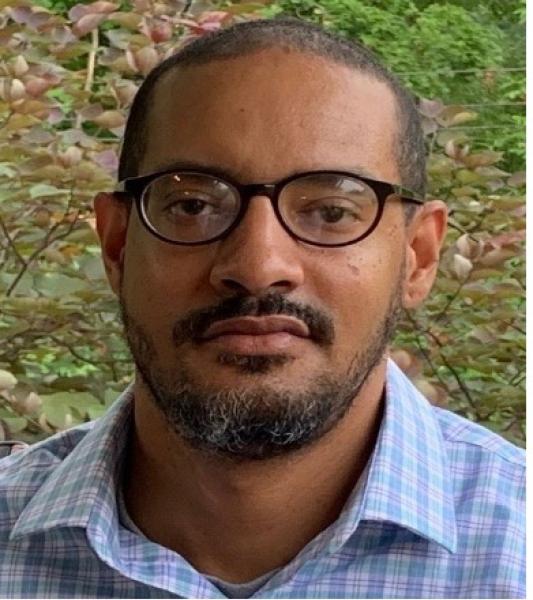
Christopher M. Brown
Christopher M. Brown is Assistant Professor of Anthropology at Washington & Lee University in Lexington, Virginia. He received a Ph.D. in anthropology from The Ohio State University in 2019.
At Washington & Lee University, Christopher teaches introductory courses integrating the four fields of anthropology, as well as upper-level courses on topics including the environment, migration and democratization.
Currently, he is working on a series of comparative ethnographies exploring democratization movements in several African societies.
As a graduate student, Christopher’s dissertation examined how West African concepts of identity, mobility and belonging shape the subjectivity of transnational migrants in Ghana and the U.S.
This work was awarded the departmental Outstanding Doctoral Dissertation in Anthropology award in 2019.
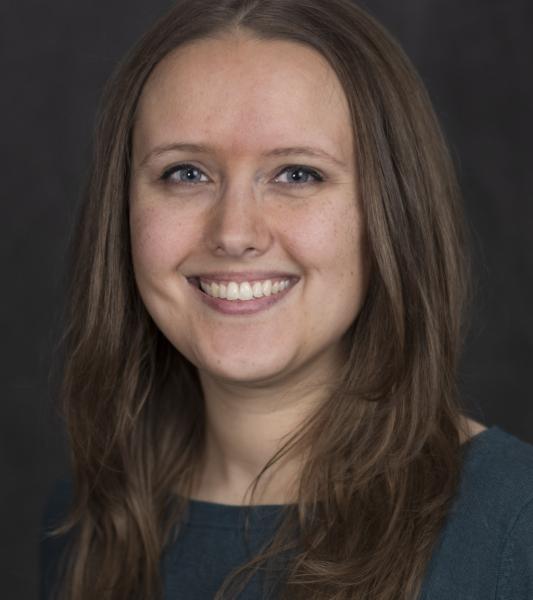
Malorie Albee
Malorie Albee is an Assistant Professor of Anthropology at Northern Michigan University in Marquette, Michigan. She received a Ph.D. in anthropology from The Ohio State University in 2022.
In the doctoral program, she pursued questions regarding the influence of the cultural environment in the foot skeleton. This primarily involved using the William M. Bass Donated Skeletal Collection to document how the recent rise in sedentary behavior has contributed to health and disease in the tarsals and metatarsals.
At Northern Michigan, Malorie teaches undergraduate and graduate courses in biological anthropology. She credits her skill as an instructor to the many semesters of teaching at OSU.
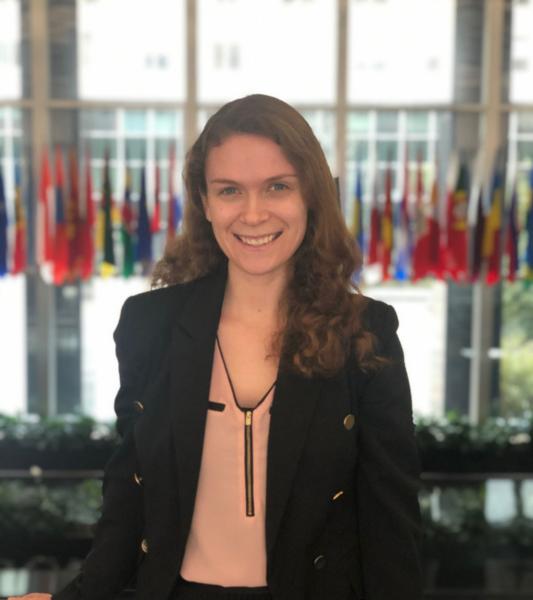
Nikki Weiss
Nikki Weiss is a biocultural anthropologist specializing in mixed methods research serving the Center for Public Health Systems (CPHS) at the University of Minnesota.
Before arriving at CPHS, Nikki worked for the Johns Hopkins Center for Indigenous Health – Great Lakes Hub, as well as for the CDC Foundation.
Her research interests include health equity and making health care accessible and attainable for all.
Nikki received an M.A. in 2017 and Ph.D. in 2020 from the Department of Anthropology at The Ohio State University. In her dissertation, Nikki examined non-Native folks' construction of race and perceptions of Native peoples through ethnography. S
he developed skills in mixed methods research, ethnography, content analysis, semi-structured interviews, surveys, descriptive and inferential statistical analysis, and coding during her time in graduate school.
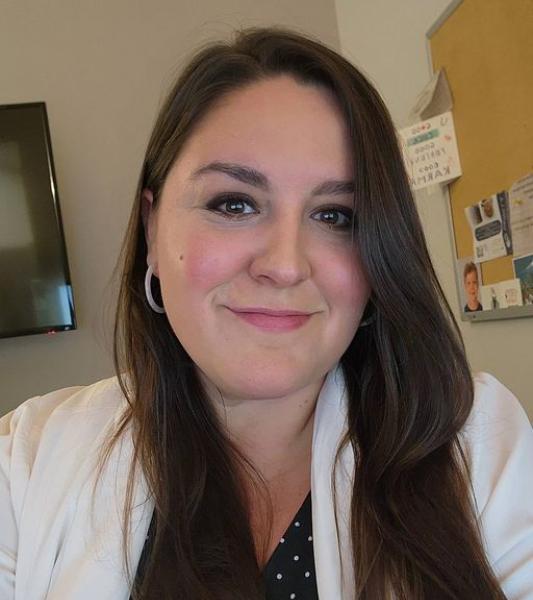
Ana Casado
Ana Casado is assistant Dean for Graduation Education and Strategic Initiatives in the College of Engineering at the Ohio State University.
Ana oversees the College of Engineering's graduate recruitment strategy and do professional development for graduate students and postdoctoral scholars.
She also works on broadening participation for engineering students and partner with other universities to create pathways for students to attend graduate school.
As a graduate student, she specialized in skeletal identification, forensic anthropology, skeletal biology, and bioarchaeology.
Skills that she developed during her graduate studies that are helpful in her current career are: project management, working collaboratively in teams, public speaking, and program development.
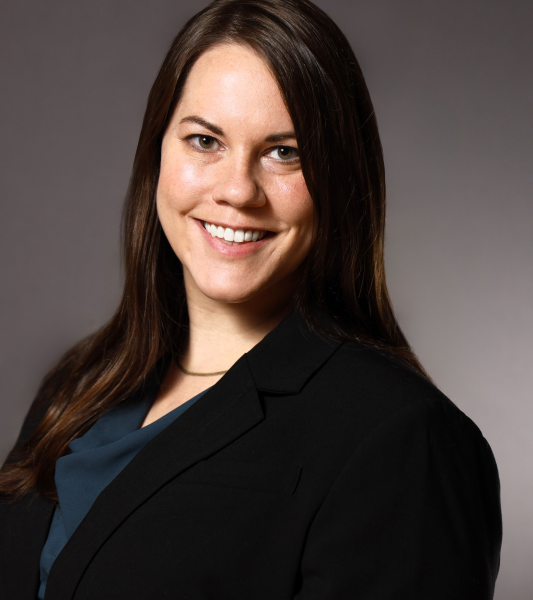
Mary Beth Cole
Mary Beth Cole is an Assistant Professor in the Division of Radiologic Sciences and Therapy at The Ohio State University in Columbus, Ohio.
She received an M.A. in 2014 and a Ph.D. in 2019 in anthropology from The Ohio State University. As a graduate student, Mary Beth developed skills in bone tissue histology and histomorphometry.
She also developed connections with the microscopic and radiologic imaging core facilities on campus, allowing her to visualize bone tissue microstructure with emerging 3D technology.
Mary Beth’s current research focuses on microscopic and radiologic imaging of bone tissue microstructure. She is interested in how bone quality is shaped by its local environment, including mechanical demand and physiological changes with age or pathology.
This research uses the tissue processing, imaging, code-based statistical computing, and data visualization skills Mary Beth learned as a graduate student.
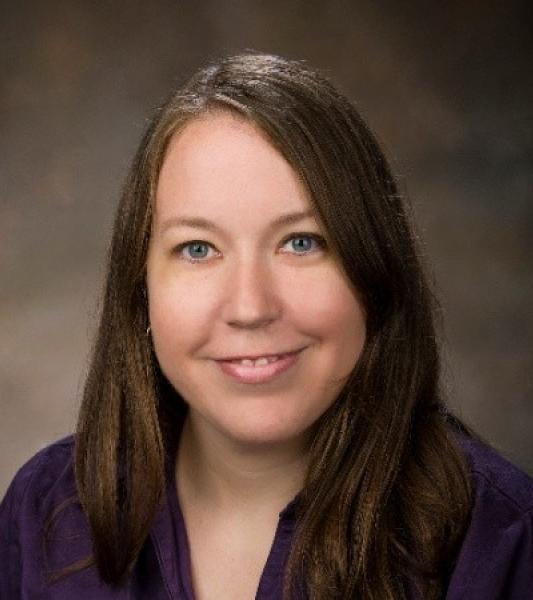
Catherine Cooke
Catherine Cooke is a Distance Education Manager and Adjunct Faculty at Saint Louis University. She received a Ph.D. in anthropology in 2012 from The Ohio State University.
Catherine studied red-capped mangabeys in Gabon during her graduate studies. In her current position, she oversees distance education quality assurance, assists faculty, and develops distance education policies and processes.
She developed her attention to detail and writing skills during her time at OSU, which she now uses as a Distance Education Manager.
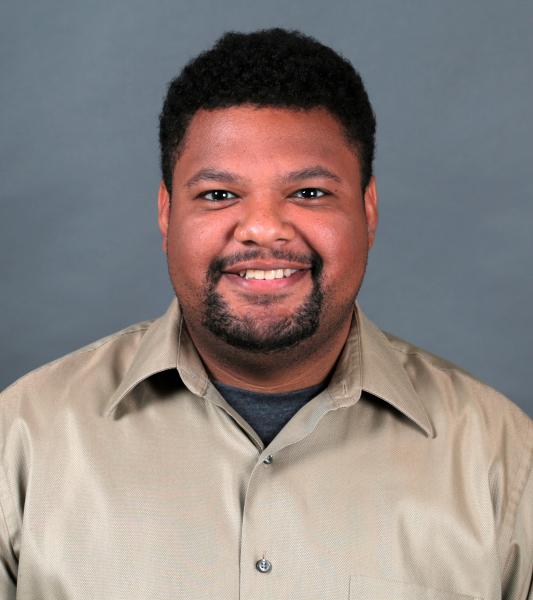
Jesse Goliath
Jesse Goliath is an Assistant Professor in the Department of Anthropology and Middle Eastern Cultures at Mississippi State University.
He is the director of the Forensic Lab and Skeletal Histology (FLASH) Center and the founding director of the Mississippi Repository for Missing and Unidentified Persons.
He received his M.A. in 2010 and PhD in 2017 from The Ohio State University. His thesis and dissertation focused on using skeletal biology, CT imaging, and histology to examine bone functional morphology and age-related changes.
These experiences allowed Jesse to do forensic casework and publish on various topics in skeletal histology, functional anatomy, and forensic age estimation.
He is currently investigating new methods for detecting variances in bone morphology using micro-CT and other imaging modalities. Moreover, he is working on developing equal opportunity practices in forensic anthropology casework and education initiatives.
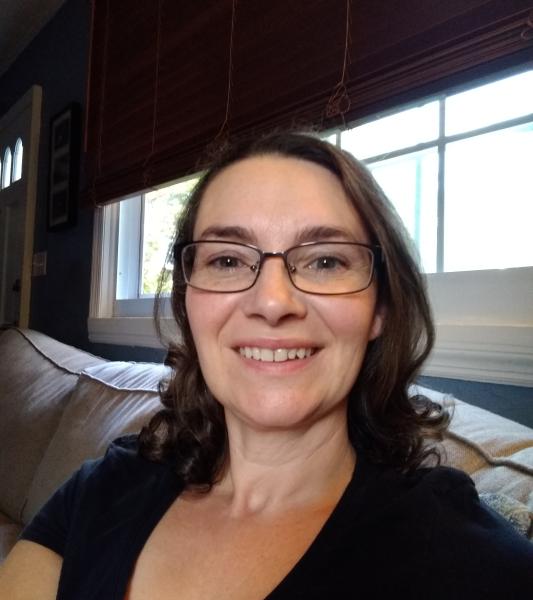
Genevieve Ritchie-Ewing
Genevieve Ritchie-Ewing is an assistant professor of sociology and anthropology at Central State University.
Her research encompasses wide variety of topics in medical anthropology with a focus on U.S. health disparities related to pregnant and laboring persons as well as higher education topics such as the use and perceptions of open educational resources.
Genevieve received her Ph.D. in anthropology from The Ohio State University in 2019. Her dissertation examined how U.S. cultural expectations of motherhood affect women's stress levels during pregnancy using ethnographic methods and biological samples.
Genevieve credits her years of teaching as a graduate student for her confident teaching ability. She developed multidisciplinary research plans through collaborations with other OSU departments and has written successful grant applications because of her training in the anthropology graduate program at OSU.
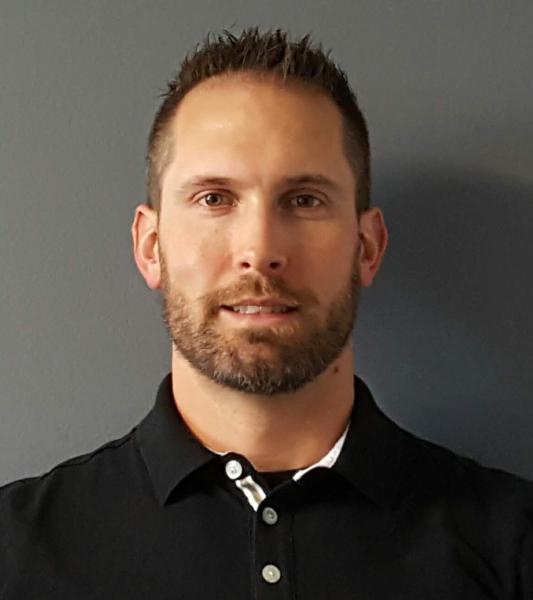
Zac Hubbell
Zac Hubbell is a Research Associate and Program Coordinator for the National Supplemental Screening Program (NSSP), a federally funded medical screening program for U.S. Department of Energy.
In his role, Zac performs original occupational health research, analyzes program data, generates periodic reports for the program's customer, reviews and summarizes medical screening results, handles IRB communications and protocol submissions, and helps strategically guide the program.
Zac received his Ph.D. in biological anthropology from The Ohio State University with a focus in human skeletal biology and bioarchaeology in 2016. His dissertation focused on using high-resolution computed tomography scans of archaeological bone to assess the development of bone microstructures.
Technical writing, organization, general research concepts, data management and analysis, and managing scientific projects are just a few of the skills learned in the OSU Anthropology graduate program that have continued to serve him well.
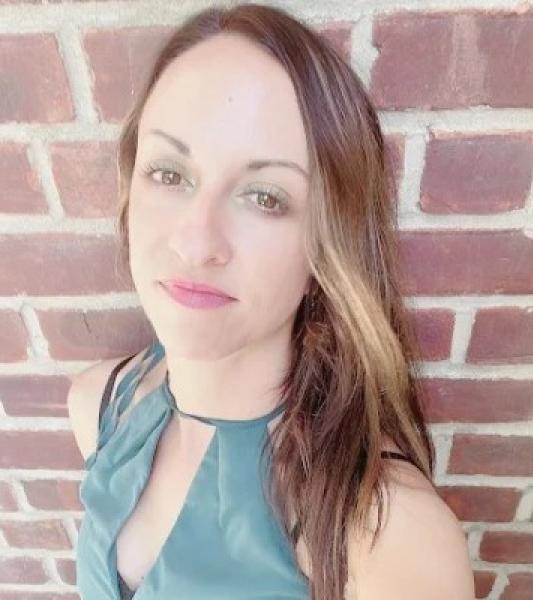
Kelly Zongo
Kelly Zongo is a Senior Director at The END Fund in New York City, NY. She received a Ph.D. in cultural anthropology from The Ohio State University in 2019.
In the doctoral program, she focused on understanding gender and resilience and risk-taking behavior among urban refugees in Cameroon.
In her current role, Kelly leads the design and implementation of programs geared towards eliminating neglected tropical diseases and addressing the underlying morbidity issues that they cause across several countries, and a global female genital schistosomiasis training program.
This includes advising on equity issues within the programs, as well as significant project management with complex, multi-stakeholder projects.
Kelly credits the graduate program for her writing and communication skills. Additionally, she uses qualitative methods learned in graduate school for advising assessments.
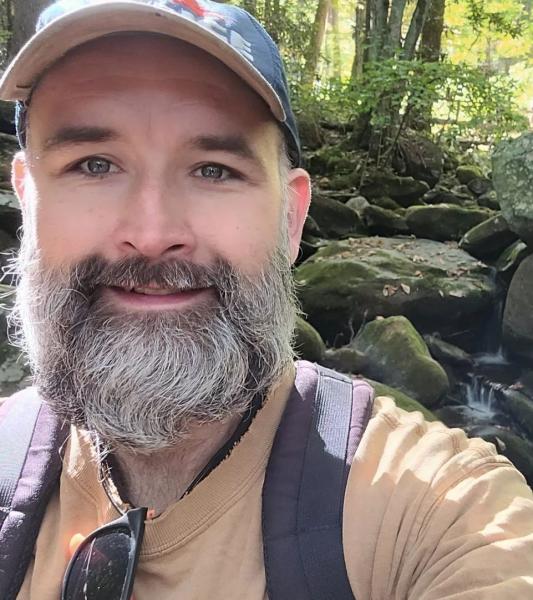
Kevin Nolan
Kevin Nolan is the Director and Senior Archaeologist at the Applied Anthropology Laboratories (AAL) at Ball State University. He received a Ph.D. in anthropology from The Ohio State University in 2010.
In the doctoral program, he focused on archaeology, particularly the Late Precontact (ca. 1000-1650 CE) period in the Ohio Valley, from an evolutionary perspective, emphasizing geospatial analysis and systematics.
His dissertation was an in-depth analysis of a 14th century village along the Scioto River, just south of Columbus.
Through private contracts and grants, AAL provide 10,000 hours of paid student employee experiences annually, training students for future careers. Kevn credits the publication and grant writing courses at OSU for his success applying for grants and prolific publication record.
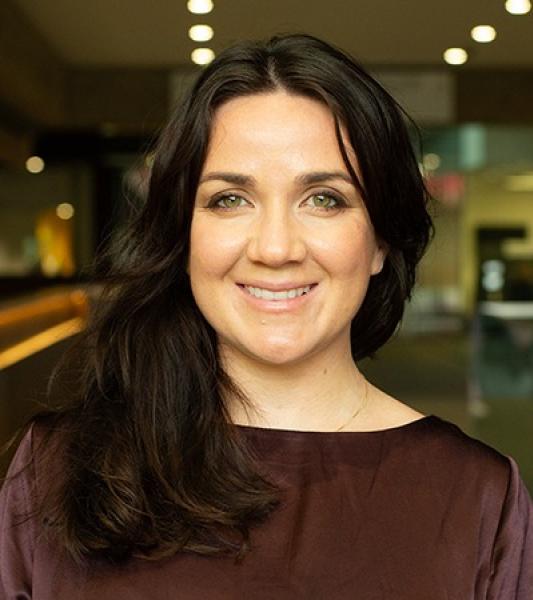
Selin Nugent
Selin Nugent is an Assistant Director and Reader at Oxford Brookes University in the United Kingdom. She received a Ph.D. in biological anthropology from The Ohio State University in 2017.
In the doctoral program, she trained as a bioarchaeologist and anthropological archaeologist. Selin's doctoral research examined the mobility strategies of pastoralists associated with the Middle Bronze Age Qīzqala complex settlement site in Azerbaijan using a combination of isotopic and mortuary analysis.
Now she holds a joint academic faculty and management position allowing her to interweave her anthropological and data science research with active engagement with industry. Her research combines computational modeling with archaeology.
She credits her coursework, opportunities to teach, and grants writing in the graduate program as beneficial for her current position.
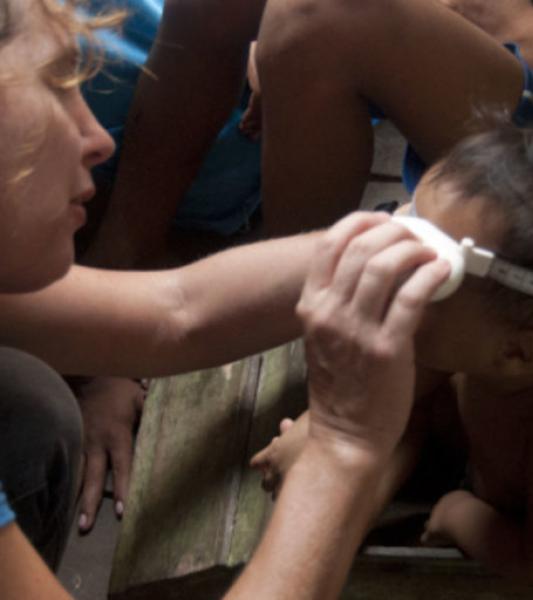
Jennifer Spence
Jennifer Spence is an Assistant State Physical Anthropologist for the Department of Archaeology and Historic Preservation in Olympia, Washington. She received her Ph.D. in anthropology from Ohio State University in 2017.
In her current position, she is responsible for the identification, removal, and reinterment of non-forensic human skeletal remains as governed by Washington state law.
Her graduate research focused on how conditions during pregnancy and early life influence dental development in infants, and what factors, including the presence of teeth, shape mothers’ decisions about what to feed their infants.
During her graduate experience, she developed creative problem-solving skills, cross-cultural understanding and communication, and perseverance. Perhaps most importantly, she notes, "I learned the value of making science relatable and relevant to those outside the academy".
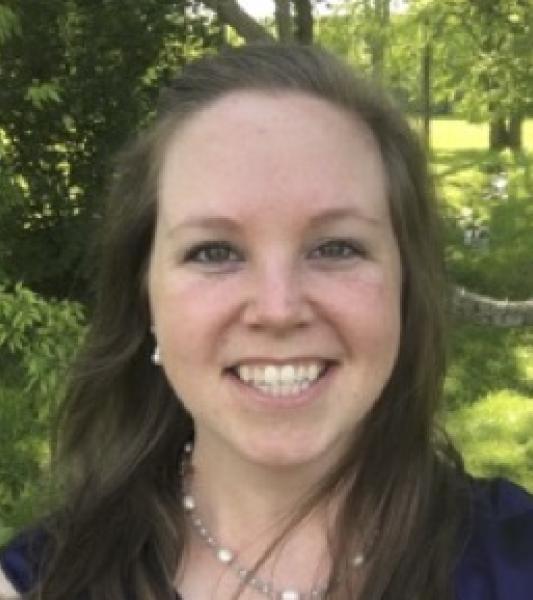
Eliza Gardiner
Eliza Gardiner is a senior evaluator at Apex Evaluation. She received her PhD in anthropology from Ohio State in 2020.
She is a consultant who provides program and project evaluation services, designs and conducts community needs assessments, and provides other research-based strategic support to nonprofits and public agencies.
To accomplish this, she builds collaborative relationships among clients, their stakeholders, and the Apex team to both deliver on project goals and to facilitate a project journey that is meaningful and informative.
In her dissertation research, she examined how cultures affects public policy implementation, in particular in the case of food security in rural Burkina Faso.
Eliza often leans on skills gained from her graduate experiences. Some of these skills include: interpersonal and intercultural communication, research design, community engagement, systems thinking, applying equity and cultural lens, and qualitative data collection and analysis strategies.
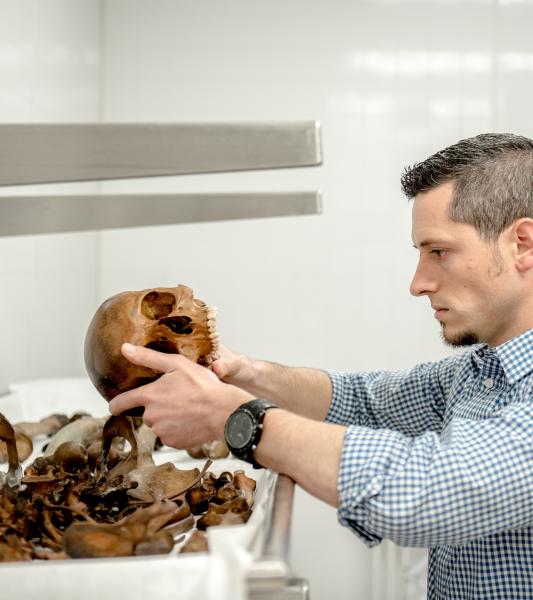
Tim Gocha
Tim Gocha is the Associate Director for the Forensic Anthropology Center at Texas State (FACTS) and manages all aspects of the willed body donation program where individuals donate their body to science for forensic science research and education, including the largest outdoor taphonomic/decomposition facility in the world and the resulting donated skeletal collection.
Tim also conducts research on skeletal histology for age estimation as well as methods of personal identification in forensic settings using comparative medical imaging.
Additionally, he consults on forensic anthropology cases for various law enforcement agencies thoughout Texas. His graduate research focused on adapting geographic information systems (GIS) software for spatial analysis of intracortical remodeling at the femoral midshaft, with implications for interpreting biomechanical loading as well as estimating age-at-death from skeletal remains.
The hands-on experience with forensic anthropology casework under the direction of faculty, in particular Dr. Sam Stout, was cruicial in developing skills that he uses on a daily basis in forensic anthropology.
Additionally, GIS skills taught by Dr. Julie Field are still integral to the research Tim is conducting more than a decade after graduation.
Career Pathways
The Tableau visualization below shows the career fields and functions of the PhDs who graduated from our program between 2009 and 2023. The original data were provided by Academic Analytics and updated by our team. The data is also presented below in accessible list form.
Level 1 – Graduates from our PhD program
- PhD program (98)
Level 2 – Sector
- Academia (74)
- Industry (24)
Level 3 – Types of organizations
- Community college (4)
- Liberal arts college (4)
- Master’s university (15)
- Doctoral university (51)
- Government (11)
- Zoo (3)
- Non-profit (3)
- Museum (1)
- For-profit (6)
Level 4 – Types of positions
- Tenure-track faculty (27)
- Instructor (21)
- Post-doc (4)
- Manager (5)
- Director (15)
- Coordinator (8)
- Researcher (8)
- Forensic anthropologist (7)
- Archaeologist (2)
- Entrepreneur (1)
